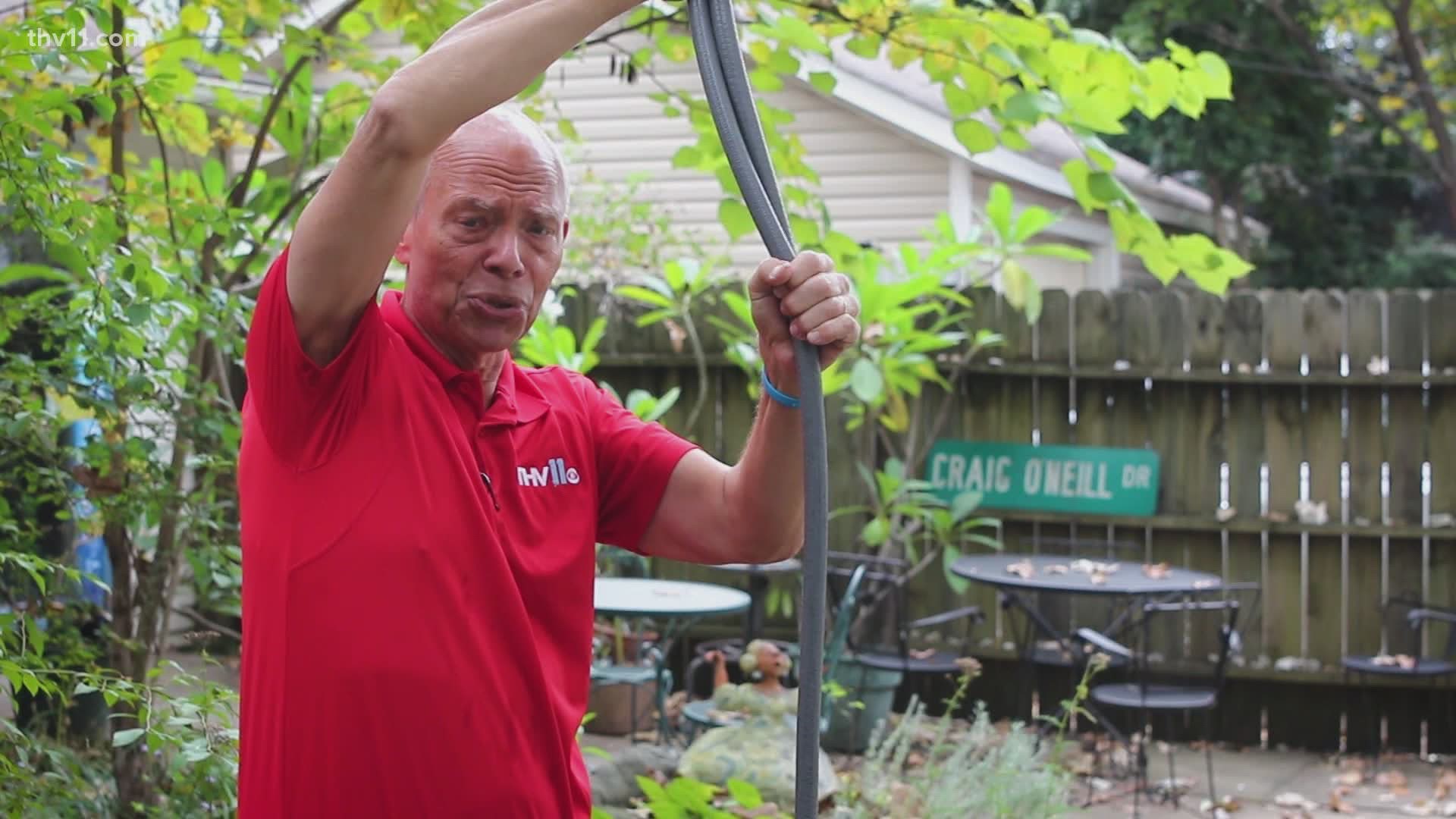LITTLE ROCK, Ark. — We are putting on the gown to talk chest pain — the kind of pain that no one wants and the kind that indicates heart attack.
To better understand it, our Craig O'Neill first takes us to his own backyard.
“Okay, the way I had it explained to me — it's like a garden hose. When you bend it and squeeze it, the flow suddenly stops. No matter how much water you try to send through there it just won't make it,” O’Neill said while demonstrating with a garden hose.
If we're talking about your heart, that's angina. That means pain but the problem is, pains can vary. A lot of people present differently, and some people present with pain on the left side to the left of the chest.
Some present with pain to the right of the chest and some present pain in the upper abdominal area.
Dr. Oydie Igbokidi of the CHI St. Vincent Heart Clinic said the bottom line with chest pain is this:
“If you have any symptoms as new and greater than mild — and, of course, it it's new, or escalating symptoms you should definitely call 9-1-1,” Dr. Igbokidi said. “Don't get in your car and drive over there.”
Your problems may need attention in route which is why 9-1-1 makes sense. As soon as you arrive, they're dealing with it.
“If that's what you come in with and we determine that to be the situation, usually what we'll do is do some further testing and some patents require invasive testing,” Dr. Igbokidi said.
All these points may seem like common sense, and yet heart disease kills over 650,000 Americans every year.
“What is your biggest frustration?” Craig asked Dr. Igbokidi.
“If people only knew that time is muscle,” Dr. Igbokidi said. “And that's what we say in cardiology. Time is muscle. So, if you only knew that the sooner you come in, the more heart muscle, we can preserve.”
Our lives are then restored to that beautiful life giving, nurturing, natural, life-giving, flow.

